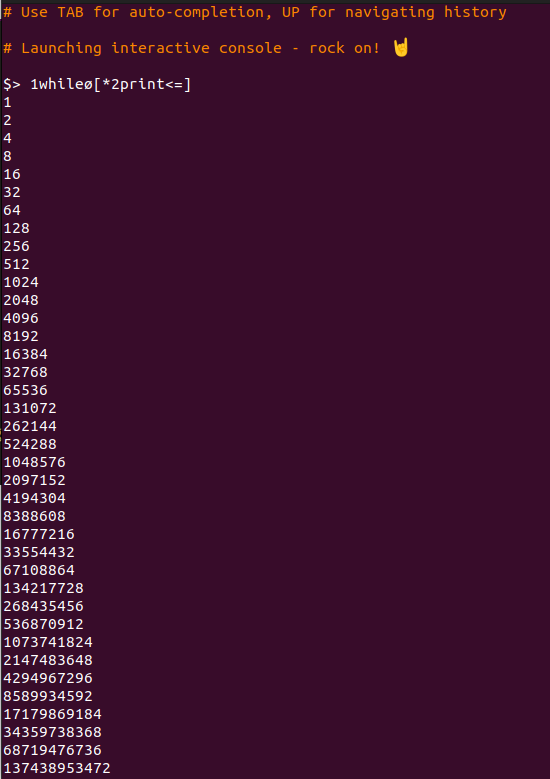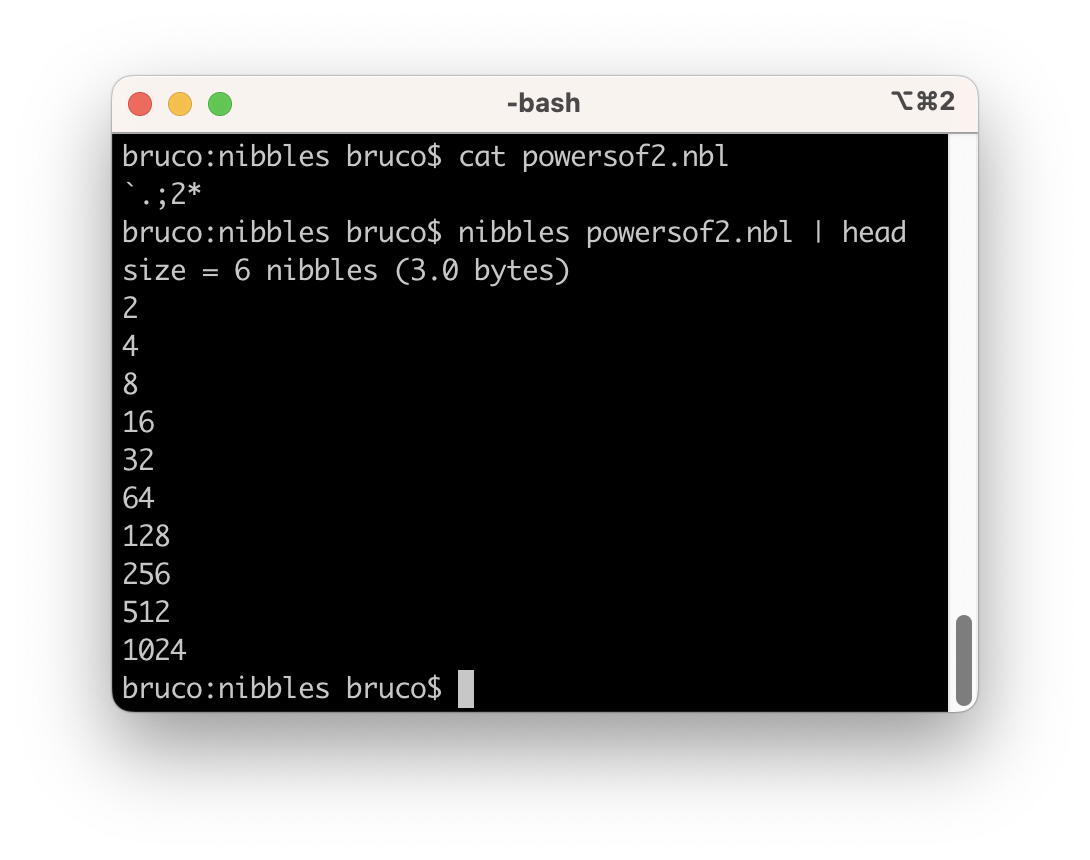In any programming language, make a program that outputs infinite subsequent powers of two, starting at any power of two with finite integer exponent. There does not need to be a seperator between outputs.
Note: it only has to theoretically output infinite subequent powers of two given infinite integer size (so you can ignore any potential issues with floating-point).
Each power of two sufficently sized (greater than some value) must be theoretically be able to be outputted within a finite amount of time.
An example in js might look like this:
var num = 1;
while (true){
console.log(num);
num *= 2;
}Remember, shortest wins
Standard Loopholes apply.


